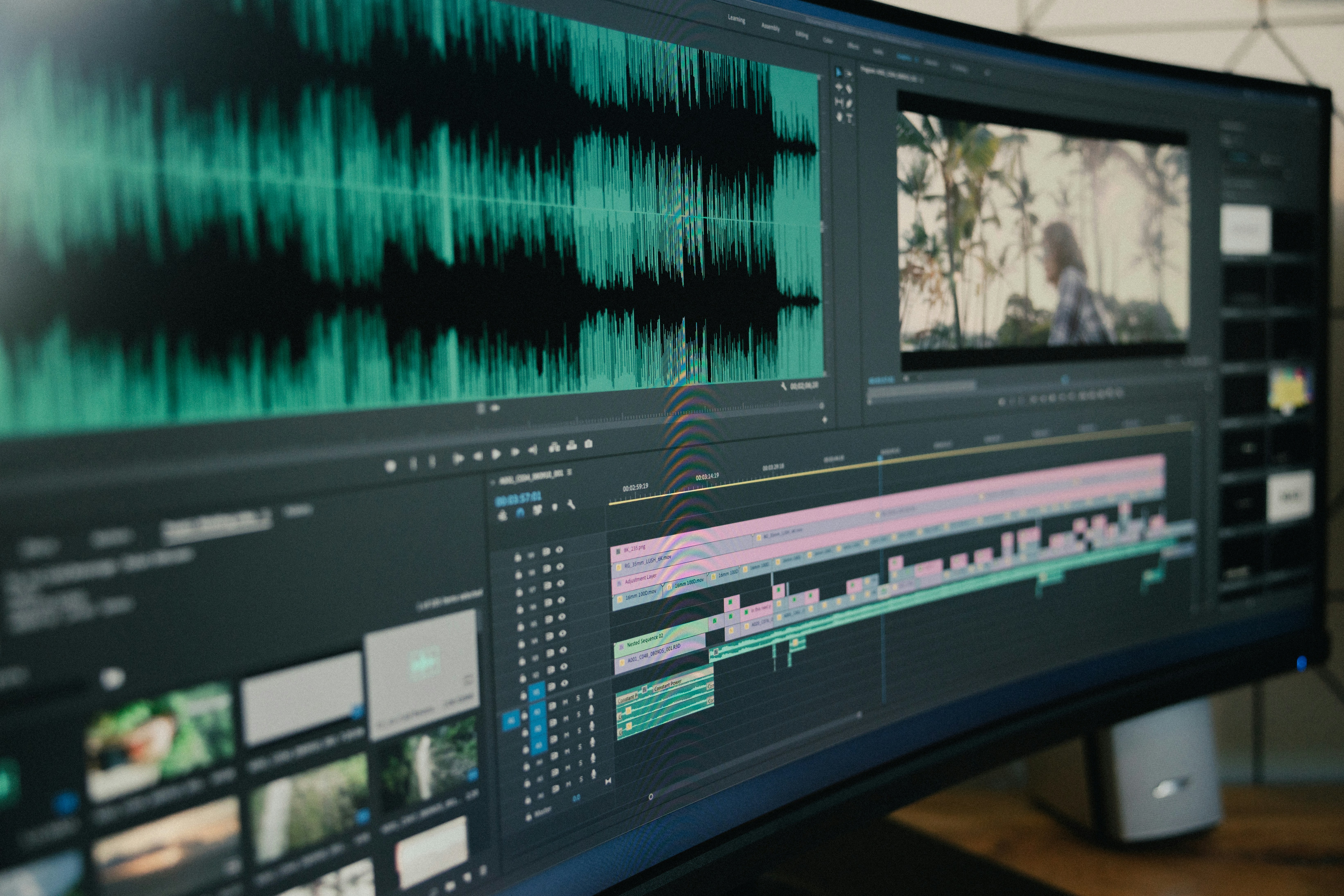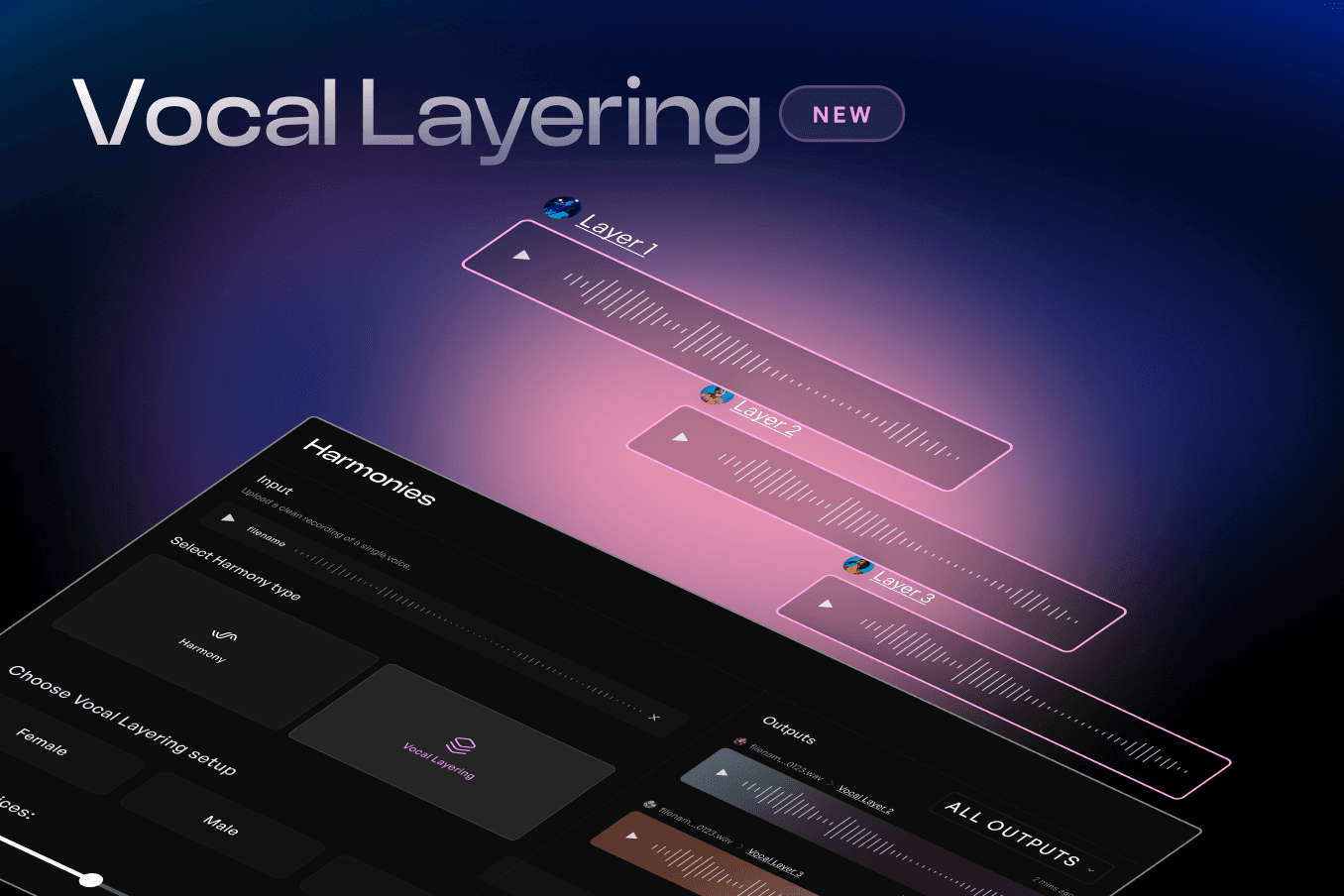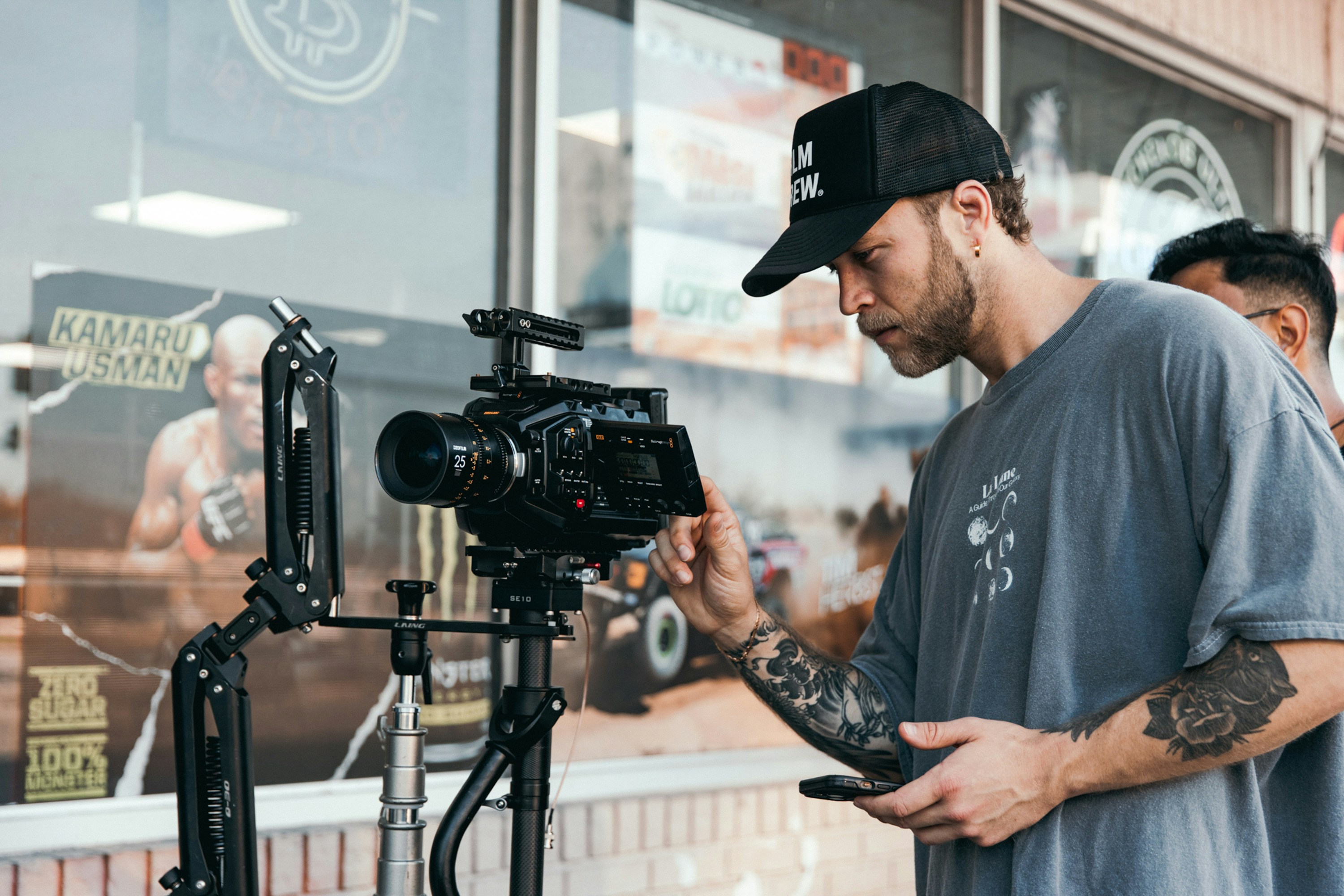Leveraging Royalty-Free Music for Content Creators
Written by
Published on
December 10, 2024
In the world of content creation, music isn’t just background noise–it’s a mood-setter, a storytelling tool, and often the secret sauce that hooks your audience. But for creators juggling tight budgets and timelines, finding the perfect track without getting tangled in licensing woes can feel like navigating a maze. Enter royalty-free music: a game-changer for creatives looking to produce standout content without the legal headaches.
Let’s break down what royalty-free music is, why it’s a must-have in your toolkit, and how you can use Kits’ AI-powered tools to make the most of it.

What is Royalty-Free Music?
Before we dive in, let’s clarify what royalty-free music means (and what it doesn’t).
Royalty-free music doesn’t mean “free” in the cost sense–it’s about usage rights. When you purchase or license a royalty-free track, you typically pay once and can use it across multiple projects without paying ongoing royalties.
Here’s how it differs from other music licensing types:
Copyright-free music: Rare and often misunderstood, this means the music is not protected by copyright law (like works in the public domain…think “Happy Birthday”).
Traditional licenses: Require ongoing payments or restrictions based on usage (e.g., per stream or per broadcast).
For content creators, royalty-free music is a stress-free, cost-effective solution.
Additionally, focusing on the end user in content creation ensures that the content aligns with the user’s needs and search intent.

Benefits of Using Royalty-Free Music
Why is royalty-free music such a buzzword in the creator community? Here’s what makes it stand out:
Cost-Effective
Budget-friendly without compromising quality. Spend less on licensing and more on elevating your content marketing efforts.
Flexible Usage Rights
Use tracks across platforms–whether it’s YouTube, podcasts, or Instagram–without worrying about extra fees.
Copyright Protection
No more takedown notices! Royalty-free music reduces the risk of copyright strikes.
Perfect Pairing with AI-Generated Vocals
Layer royalty-free instrumentals with AI vocals (like those from Kits AI) to create unique soundscapes effortlessly.
Scalable for Growth
Whether you’re a solo creator or managing a growing channel, royalty-free music scales with your needs.
Additionally, using royalty-free music can help build a strong personal brand by providing consistent and professional audio content, which enhances your online presence and engagement.
Types of Royalty-Free Music: Finding the Perfect Fit for Your Needs
When it comes to choosing royalty-free music, there’s no one-size-fits-all solution. Each type of music source offers unique benefits, catering to a wide range of creators. Here’s a breakdown of the main options:
Traditional Stock Music Libraries

What They Offer:
Platforms like Bensound, Artlist and Epidemic Sound provide curated collections of pre-made tracks. These tracks are professionally produced, polished, and ready for immediate use.

Ideal For:
Quick-Turnaround Projects: Need music for a deadline today? These libraries are perfect for last-minute needs.
Smaller-Scale Creators: Ideal for creators with a lighter posting schedule or limited budgets who still want high-quality audio.
Genre-Specific Searches: If you know exactly what type of vibe or genre you’re after, stock libraries make it easy to filter by mood, instrument, or style.
Exploration: Want to sample a variety of tracks to inspire your project? Stock libraries allow creators to browse diverse options and experiment with different styles.

Use Cases:
Enhancing vlogs, corporate videos, or product demos with background music.
Adding a professional sheen to wedding films or highlight reels.
AI-Powered Music Generation Platforms
What They Offer:
Tools like Suno and Udio revolutionize music creation by allowing you to generate custom tracks with simple prompts. Describe the mood, tempo, or instruments you want, and let AI craft a tailor-made soundtrack.
Ideal For:
Custom Soundtracks: Perfect for those who need tracks uniquely suited to their content.
Iterative Creators: AI tools allow you to experiment quickly, refine your inputs, and generate multiple variations.
Emerging Creators: Ideal for individuals without access to expensive DAWs or production knowledge but who want creative control.
Use Cases:
Creating on-brand theme music for YouTube intros or podcasts.
Generate dynamic scores for gaming streams or creative storytelling.
Subscription Services
What They Offer:
Platforms like Epidemic Sound and Soundstripe operate on subscription models, giving users unlimited access to vast libraries of music and sound effects for a monthly or annual fee.
Ideal For:
Frequent Posters: Perfect for creators producing content regularly, like YouTubers or social medial influencers.
Budget-Conscious Users: A single subscription often costs less than licensing tracks individually.
Content Variety: Access to expansive libraries with multiple genres ensures you always have fresh, diverse options.
Use Cases:
Adding unique music to weekly uploads, ensuring each video stands out.
Leveraging sound effects for comedic timing or action-heavy scenes.
Custom Creation Tools
What They Offer:
Innovative tools like LANDR Composer empower you to tweak and adapt chord progressions, basslines and melodies, making them uniquely yours. This hands-on approach bridges the gap between pre-made music and full-scale production.
Ideal For:
Music Producers: Those who want more control over their tracks but don’t want to start from scratch.
Unique Branding: Great for creating a signature sound that aligns perfedctly with your personal or business identity.
Intermediate Creators: If you’ve got some musical knowledge, these tools allow you to fine-tune tracks to fit your creative vision.
Use Cases:
Designing custom background scores for high-quality ads or video essays.
Crafting loopable tracks for long-format content like streams or tutorials.
These music sources can be used effectively on a YouTube channel to enhance your content and engage your audience.

How to Choose Royalty-Free Music
Picking the right track isn’t just about hitting “play”; it’s a crucial part of your content strategy. Here’s how to ensure your music hits the mark:
Match Music to Brand Identity
Your music should reflect your brand’s vibe, whether it’s bold and energetic or chill and introspective.
Understand Licensing Terms
Not all royalty-free licenses are created equal. Double-check terms to avoid surprises.
Quality Assessment Criteria
Crisp, high-resolution audio is non-negotiable for professional content.
Genre and Mood Considerations
Define the emotional tone of your project and find music that complements it.
Best Practices for Implementing Royalty-Free Music
Make the most of your tracks with these content strategy tips:
File Format and Quality: Though .mp3’s might save space, choose .wav files for the best audio fidelity.
Platform-Specific Guidelines: Ensure your music meets platform requirements (like YouTube’s content ID).
Editing and Modifying: Use Kits Vocal Remover Tool to isolate a vocal track and convert it into one of the many high quality options available to customize your track more to your liking. Or use the Kits Stem Splitter to swap out the drums or other instruments for something different.

Maximize the Value of Royalty-Free Music with Kits
Royalty-free music isn’t just a shortcut; it’s a catalyst for creativity. With Kits AI, you can:
Quickly pair tracks with AI vocal models.
Customize music to match your project with AI instrument models.
Stay ahead of trends with cutting-edge tools.

Royalty-free music is the ultimate tool for content creators who want to focus on what they do best: creating. Whether you’re a newbie or a season pro, tools like Kits AI ensure that your audio is as unique and captivating as your vision.
Ready to elevate your content? The future of music creation is here, and it’s powered by AI.
Get started with Kits AI today!
-SK
Sam Kearney is a producer, composer and sound designer based in Evergreen, Colorado.






